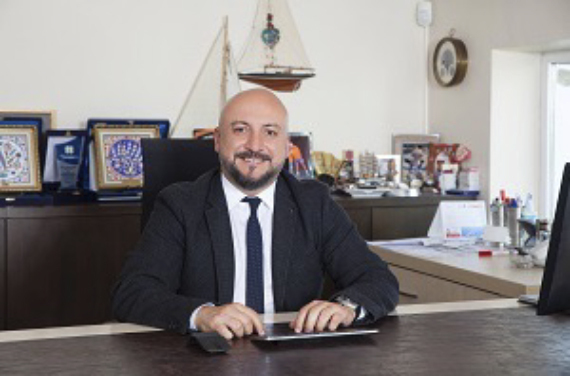More news
- Nigeria’s paint industry navigates regulatory changes and economic challenges amid p...
- Focus on the global coatings market: Global coatings market outlook
- Ask Joe Powder – October 2024
- Chinese paint majors look to domestic consumer sales as commercial real estate slumps
- Architectural coatings in Nepal and Bhutan

Nippon Paint Marine has registered a significant spike in Turkish drydockings as operators of small – to mid-size tonnage redirect vessels from Asia due to capacity issues and a general tightening of COVID-19 rules.
According to the Japanese paint manufacturer, one of the major global suppliers of marine coatings, ship repair projects at facilities in Turkey’s Tuzla district have increased by 15 to 20% over the past 12 months, with many repair yards close to capacity.
Captain Baybora Yildirim, Managing Director, Nippon Paint Marine Turkey, said the confluence of a number of market dynamics has had a beneficial impact on the region’s maritime cluster. In particular, he singled out the expiry of drydock extension certificates issued six to 12 months ago combined with capacity issues at Asian facilities amid a resurgence in COVID cases.
"Historically high freight rates have resulted in owners deferring scheduled drydockings to allow vessels to keep on trading, but many of these certificates are due to expire, resulting in increased drydocking activity.
"Shipowners are also being hit by a tightening of COVID restrictions in China and Singapore, where vessels are waiting at anchorage for up to two weeks. And with shipowners looking at keeping their vessels trading for as long as possible we are seeing more ships heading directly to Turkey, in some cases on the last day of their drydock extension rather than lose any trading days.”
Capt. Yildirim furthered that market dynamics are also resulting in an increase in orders for higher value coating systems designed to keep drydock time to a minimum. "When times are bad, shipowners will consider cost over performance, but we are seeing the reverse today: its quality over cost. Shipowners are investing in coatings proven to perform over extended periods.”
John Drew, Director, Nippon Paint Marine Europe, said: "I have never seen a supply and demand imbalance quite like the one we are seeing today. Freight rates have quadrupled; they are so high at the moment that every shipowner wants to be at sea with a cargo earning money, rather than in drydock. When you consider the time charter rate for a handy size bulker is about US$30,000, then a drydocking can be a very a costly business. It is for this reason we developed FASTAR.”
Nippon Paint Marine’s new antifouling system minimise the time in drydock required for hull coating work. Depending on the vessel, a FASTAR application can reduce drydock time for a two-coat system by one day.
"A paint job can now be like a Formula 1 car entering the pits: in and out in no time,” said Drew.
Nippon Paint Holdings has had a presence in Turkey since 2016, when it opened Nippon Paint Turkey Denizcilik Boya Sanayi Ve Ticaret A.S. The Japanese company then went on to expand its foothold in the region with the acquisition of Betek Boya in 2019, giving the company the largest coatings market share in the country.
"Turkey is a more popular region to drydock than it was 10 years ago, due largely to the improvements made in quality control,” said Capt. Yildirim. "We are working on about 12-14 projects each month, some of which are for the world’s major shipowners and container lines, which are now regularly drydocking at Turkish yards.”
Typically, vessels of between 3,000 and 25,000dwt drydock at Tuzla’s 44 repair yards. Yalova, near the eastern coast of the Sea of Marmara, tends to attract larger vessels up to 120,000dwt.



